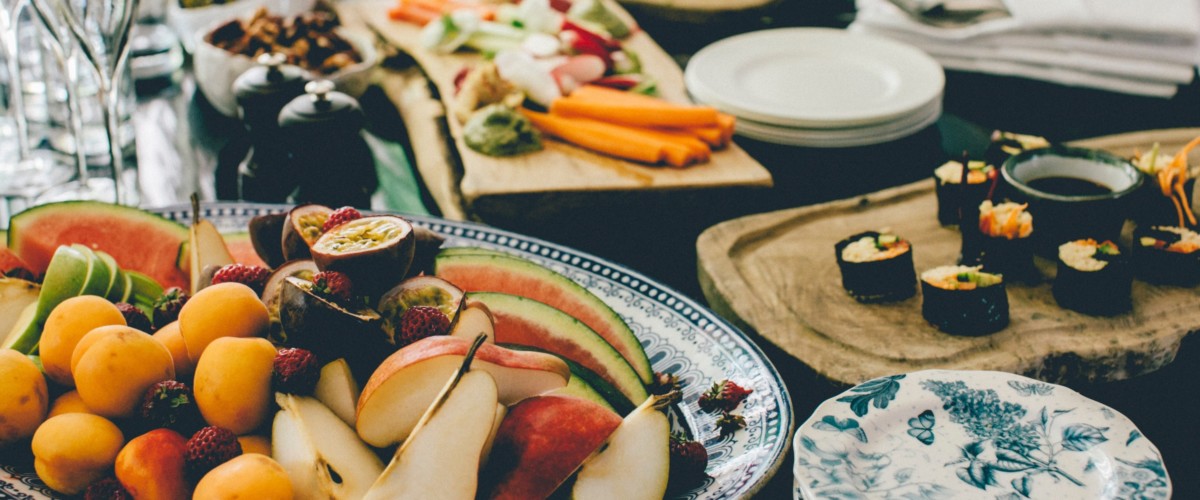We were up so early that it was still dark outside. In typical Florida style, the sky was foggy and heavy with dampness. The drive to the airport in my 12-year-old mind was magical; we were setting off on an adventure and moving to Bermuda.
This was new for me because, though I was born there and lived there for several years, I had no memory of the place. My father, sister, and I were leaving my grandparents’ home where we had lived for the last five years during the painful and harrowing divorce between my father and my mentally ill mother who was no longer allowed contact with us. I was looking forward to something new and different, a time to start over and a time for us to feel like a real family.
When we arrived, there were several weeks of getting settled and learning about our new home—the turquoise clear waters, the numerous forts, and extended family that I didn’t even know I had. Once we were in our own home, we began the tradition of visiting my Great Aunt Emily’s home every Sunday for lunch. Wild in her youth, she had mellowed into a doting grandmother who loved to have family over. Her daughter, Suzy, red-haired and feisty, was a fabulous cook, and we looked forward to our Sunday meals with anticipation. My dad worked hard to provide a home for us, but dinners were not something he could coordinate. There were a few nights when I had Doritos and Coke for dinner.
It is for this reason that those Sunday meals became something special to me. We would drive on our winding, flower-laden Bermuda roads to her home in Paget. Chugging up the steep hill to her red, concrete house surrounded by red and yellow hibiscus bushes. We’d squeeze our car into a spot in the yard and park semi-vertically. The huge willow tree with plastic chairs arranged underneath, a shady spot in the thick heat of Bermuda dominated the landscape of her yard. When we entered through the darkened porch, we saw a house filled to the brim with stuff—knick-knacks galore and a splendid supply of Enquirer magazines.
But the main event was in the kitchen. Filling every available inch of the tiny kitchen table was food. Not just any kind of food—this was real, home-cooked food. We had turkey and ham, mashed potatoes, green beans, carrots, rolls, and the most amazing macaroni and cheese in existence. It was thick, cheesy, and heavenly. We thought about it all week until we could eat it again. I’m pretty sure this pleased Suzy as she started making an extra portion of it for us to take home.
Of course, we asked for the recipe for ourselves (not that we would have had a clue how to make it). She refused year after year. I never understood why until I grew up and realized that giving us the recipe meant we wouldn’t need her anymore. The gift of that macaroni and cheese every Sunday was the feeling of family that I got to experience every time I went there. The food was an invitation to something more. I was young and didn’t understand this, so I kept on asking until one day, in my late twenties, she gave us the recipe.
Even though I had finally gotten it, I did not immediately try the recipe. Instead, a few years later with a family of my own, digging through my recipe book, I found that macaroni and cheese recipe. I was transported back to those Sunday afternoons sitting around the crowded table laden with so much food. I remembered sitting on the couch and laughing over something silly that someone had said and of our walks after lunch where my father pointed out the places we enjoyed when we were once a family of four, including our former house, which was next door.
My mother and father have now passed away, and my relationship with my sister is strained, so I’m feeling a bit of an orphan. The memories of Bermuda have a bittersweet feel to them—of both loss and invitation for something more. I’m reminded of how Jesus Himself gave an invitation to His disciples. Shortly after Jesus’s resurrection, seven of His disciples find themselves fishing on the Sea of Tiberius. Even though they now know Christ has been resurrected, they seem to lack direction, so they attempt to go back to their former occupation. Just like the momentous day they first met Jesus, their fishing is unfruitful—that is until He shows up. John 21 records this scene:
Just as day was breaking, Jesus stood on the shore; yet the disciples did not know that it was Jesus. Jesus said to them, “Children, do you have any fish?” They answered him, “No.” He said to them, “Cast the net on the right side of the boat, and you will find some.” So they cast it, and now they were not able to haul it in, because of the quantity of the fish (v. 4-6, ESV).
It is at this moment that John and Peter recognize Jesus and come to Him. When they arrive on the shore, they see an unusual scene. Before them is a charcoal fire with fish and bread laid out on it, and Jesus then says to them, “Come and have breakfast.” The disciples are nervous and shy around Him—clearly, all their interactions have yet to remove the awe of a resurrected Christ. During this time, Jesus takes Peter aside to give him a holy calling of loving and serving the Church.
You see, Peter and the other disciples still had a calling—they were to be fishers of men. They needed to go back to the first encounter to remember that. They now had a new family to reach—a family that would remember Christ’s offering by a sacred meal. It’s no accident that the one sacrament that we are commanded to do regularly is the Eucharist. In this, we are invited to remember that we are chosen, that we are included in the family of God. The disciples were lost, but now, having found Christ, they know their new purpose. They were to create a family and celebrate it.
Though I grieve the lack of family that I dreamed of as a child, we have been invited to dine with Christ. I have a new family both physically and spiritually. I have children and in-laws, but I also have a spiritual family that is as large as the world and as diverse as the stories in those Enquirer magazines. In this sense, I can never truly be an orphan, and I can also offer the meal of family to those who also might have lost their way and need to find their way back home. I’m not half the cook Suzy was, but I hope to extend a table of love just as she did for us those many years ago. Every time I make that recipe and share it with others, I am honoring her memory and thanking her again for being family when I did not yet know what that looked like, my eyes focused forward to the family I now have in Christ.
This is an updated edition of a post originally published on redbudwritersguild.com
Featured Image by Dylan Nolte




















Comments are closed.